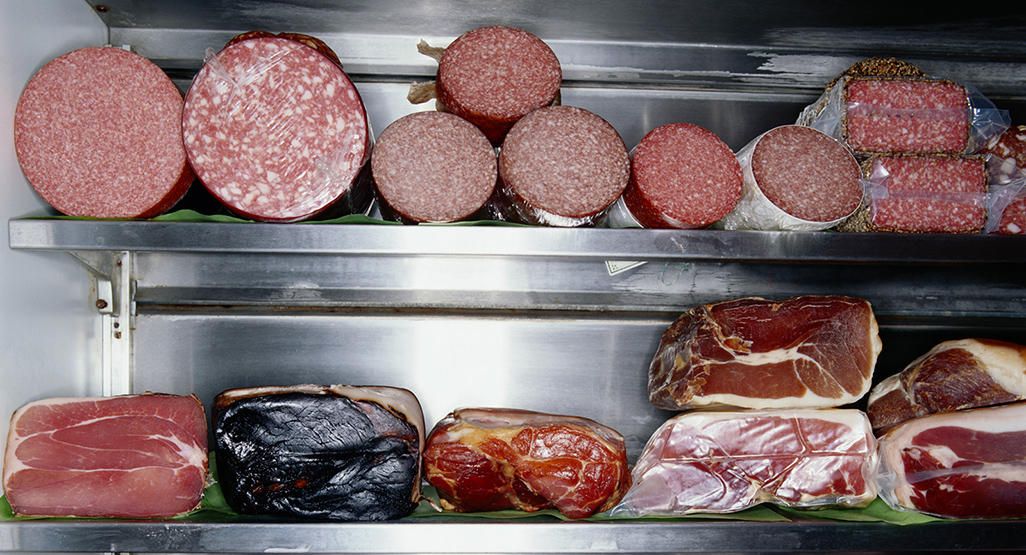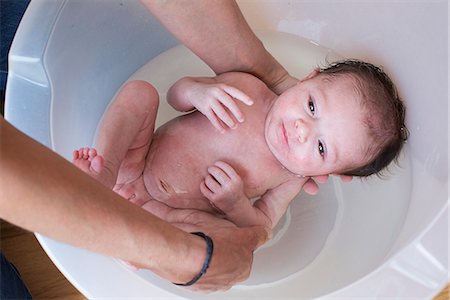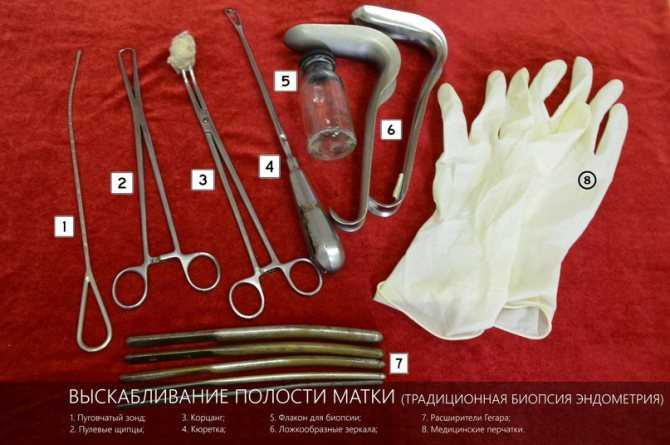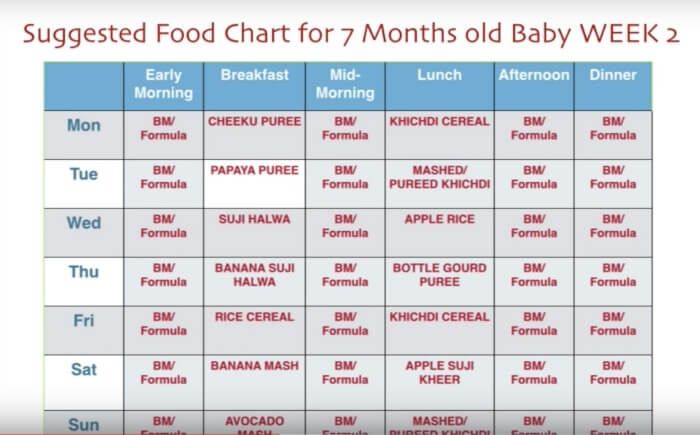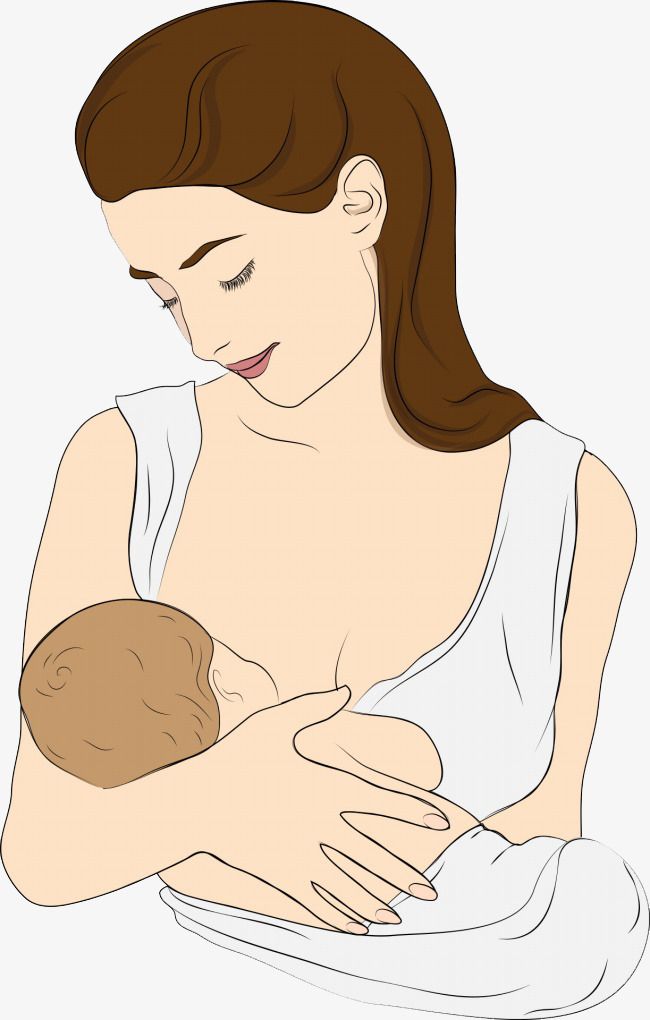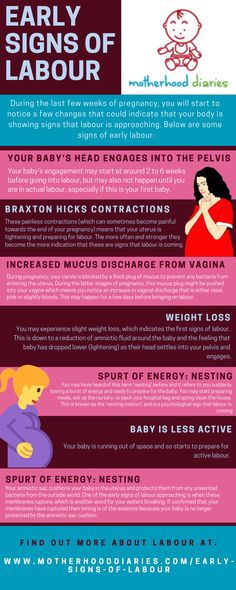Can you eat sausages while pregnant
Can You Eat Sausage When Pregnant? Safe Varieties and More
With so many flavors and varieties, it’s no wonder that you’re craving sausage. But is it safe to eat during pregnancy? The quick answer is yes, you can enjoy sausage safely when you’re pregnant. That said, there are some food rules you’ll need to follow to ensure you and your baby don’t get sick.
Here are the types of sausages you can safely eat, notes for preparing them, and when you should call the doctor if you have concerns.
Before you sink your teeth into that tasty bratwurst, it’s important to know that there are four main types of sausage. All are made with ground meat that’s mixed with various seasonings, fat, salt, and possibly preservatives or fillers. The meat mixture is then stuffed into a convenient casing (often made from animal intestines) or sometimes pressed into patty form.
- Fresh sausage is made from uncooked meat that’s either chopped, ground, or pureed. Examples include Italian sausage, Mexican chorizo, bratwurst, breakfast links, and sausage patties.
- Pre-cooked sausage, as the name implies, is made from pureed meat that’s precooked either before or after stuffing into casings. Examples include hot dogs, bologna, frankfurters, mortadella, and some German-style “wursts” (but you should always double-check with your butcher).
- Smoked sausage is another type of cooked sausage that’s smoked in either a smoker or smokehouse over a slow-burning fire. Examples include andouille and kielbasa.
- Cured sausage is what you might often see on a charcuterie board. It’s made with fresh meat that’s salted and then left to air-dry for weeks or months. Examples include Spanish chorizo, coppa, and Genoa salami.
So, what’s safe?
Any type of sausage that is freshly cooked is safe to eat, provided that you eat it while it’s still hot and not after it’s been sitting out a while. You’ll need to pay attention to temperature, too, says the U.S. Department of Agriculture (USDA):
- For sausage made with lamb, pork, beef, or veal, aim for an internal temperature of 160°F (71.
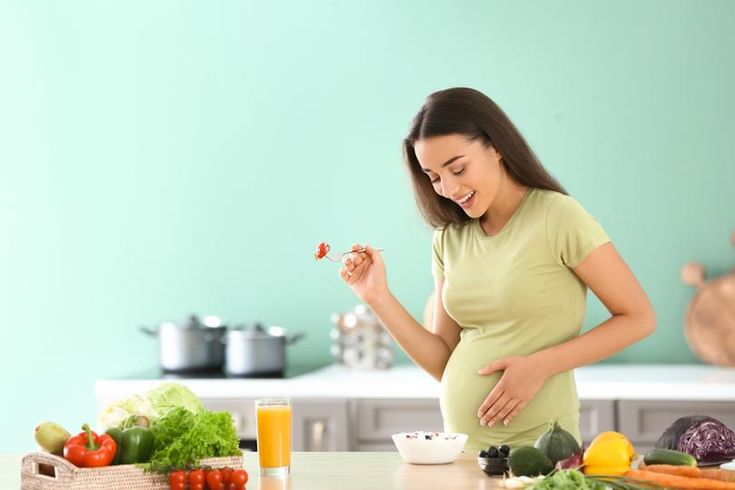 1°C).
1°C). - For varieties made with turkey or chicken, aim for a bit warmer — 165°F (73.8°C).
This means that your favorite fresh sausages (breakfast links, pork sausage, Italian sausage, some bratwurst and bockwurst, etc.) and cooked/smoked sausages (hot dogs, braunschweiger, cotto salami, Polish sausage, kielbasa, etc.) are likely safe provided you’ve followed these food safety guidelines.
Related: Safely handling meat, poultry, and fish
You may want to pass on cured sausages (also called cold cured meats), like salami, pepperoni, certain chorizos, and prosciutto. That is, of course, unless you cook them fully before eating. For example, you may be OK to eat pepperoni atop a pizza that has been baking at high heat in your oven.
The USDA notes that cured meats may harbor E. coli, which is a bacteria that can cause foodborne illness. While the use of salt, lactic acid, and other ingredients does often kill off bacteria, high-risk people (including pregnant people and children) are best off sticking to heat-treated meats.
With all types of sausage, the worry is eating undercooked or otherwise contaminated meat that can lead to foodborne illnesses. Even precooked meats, like hot dogs, can harbor bacteria like Listeria and shouldn’t be eaten without heating adequately.
Another concern with meat is with a parasite called Toxoplasma gondii that can cause an infection called toxoplasmosis.
About 50 percent of toxoplasmosis infections in the United States are caused by eating foods like undercooked meats. Pork, lamb, and venison are particularly high on the risk list, so take care with sausages made with these meats or avoid them altogether.
Cook all fresh sausage to an internal temperature of between 160°F (71.1°C) and 165°F (73.8°C), depending on the meat. When cooking pre-cooked sausages, aim to get them steaming hot or 165°F (73.8°C). You can purchase an inexpensive food thermometer online or at a big box store.
And, while tempting, never sneak a bite of sausage to sample before it’s fully cooked.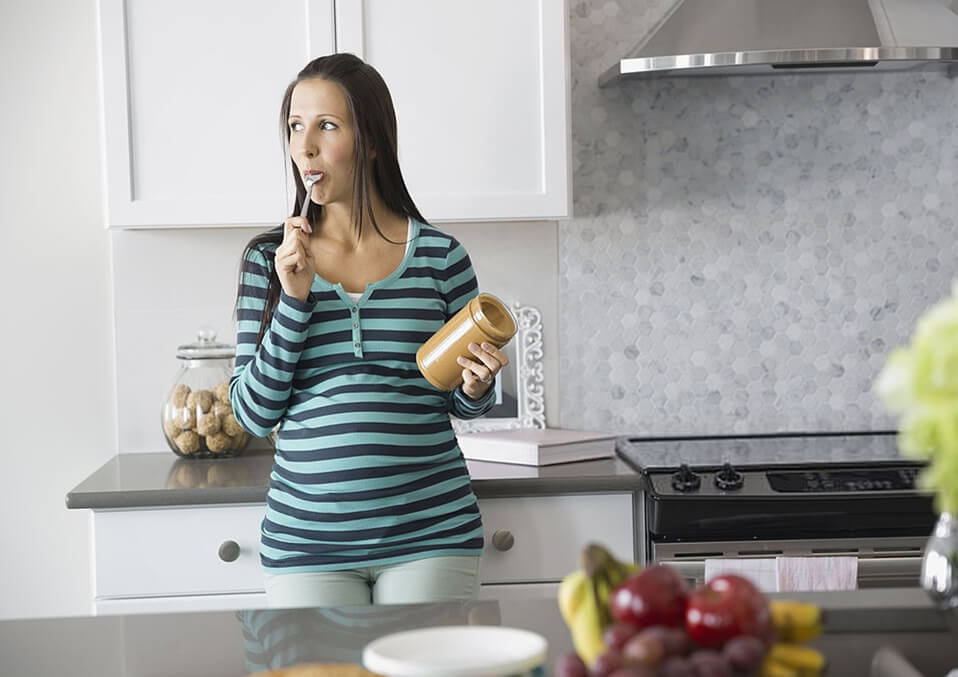
Cross-contamination is another concern. Before preparing other foods, always clean any cutting boards, countertops, utensils, knives, or other kitchen items that come in contact with raw meats. Simply washing well with dish soap and hot water — and then rinsing well — is sufficient.
While you’re at it, be sure to separate any raw meats from other ingredients in your refrigerator or when you’re prepping a meal. While it may seem like overkill, you may even want to make sure you keep them apart in the grocery cart as well.
All sausages (except cured varieties) can go bad without proper refrigeration even before opening. Here’s a guide for how long you can store in the fridge or freezer, depending on the type.
| Type | Before opening | After opening | Freezer |
|---|---|---|---|
| Fresh sausage (uncooked) | 1–2 days | 1–2 days | 1–2 months |
| Fresh sausage (previously cooked) | n/a | 3–4 days | 2–3 months |
| Cooked sausage | 2 weeks | 7 days | 1–2 months |
| Cured sausage | 6 weeks in pantry; indefinitely in refrigerator | 3 weeks | 1–2 months |
Last, but not least, always wash your hands thoroughly with warm soapy water after handling meat.
Related: Food safety during pregnancy
One link (70 grams) of a typical Italian sausage packs an impressive 14 grams of protein. However, it also contains 27 percent of the daily fat and 26 percent of the daily salt recommendations for the average adult. So, enjoy your favorite sausages in moderation along with plenty of fresh fruits, vegetables, whole grains, dairy, and other protein-rich foods.
And if heartburn is plaguing your pregnancy, you might want to skip on the sausage, hot dogs, pepperoni, and similar foods. These can be triggers for heartburn, which means they get your stomach acids brewing and cause that painful burning in your esophagus. Not fun at all.
If you’re looking for a substitute, you might even consider trying plant-based alternatives, like Beyond Sausage. It comes in three flavors — Original Bratwurst, Italian, and Sweet Italian — and boasts 16 grams of protein per link with less saturated fat than its animal counterparts.
Related: The ultimate guide to vegan meat substitutes
Feeling a little off? Stomach cramps, diarrhea, vomiting, and fever may be signs of exposure to bacteria, like E. coli or Listeria. Contact your doctor if you think you may have eaten contaminated foods.
coli or Listeria. Contact your doctor if you think you may have eaten contaminated foods.
Symptoms of toxoplasmosis include things like:
- fever
- headache
- muscle pains
- stiff neck
- swollen glands
Some people may not notice any symptoms at all. Unfortunately, that doesn’t mean the infection can’t cross the placenta and reach your baby.
The Centers for Disease Control and Prevention estimate that between 300 and 4,000 babies are infected with toxoplasmosis each year in the United States. It can lead to a range of health issues for babies, including hearing loss, blindness, or intellectual delays. Some children may not develop these issues until years after they’re born.
If you notice symptoms or have concerns you may have eaten raw or undercooked sausage, speak with your doctor for next steps. Your health care provider may want to monitor you and your baby more closely to look for signs of infection or complications.
You can enjoy many of your favorite sausages throughout your pregnancy. Be sure to store your meat properly, prepare foods with clean utensils and on clean surfaces, and cook to appropriate temperatures to kill off potential bacteria and parasites.
When in doubt, consider skipping a dish if you can’t verify these steps were followed. It’s well worth the extra fuss to ensure you and your baby stay healthy.
Can Pregnant Women Eat Sausages & Summer Sausage? Is It Safe?
Last Updated on December 17, 2021
There are as many types of product called ‘sausage’ as there are questions about it in pregnancy. I decided to create a complete guide to eating sausage in pregnancy, because the current information isn’t very clear, particularly on what is classed as a ‘sausage’.
Can Pregnant Women Eat Sausage and Summer Sausage? Because sausages are usually served cooked and hot, sausage is usually safe to eat when pregnant. Cold sausage like summer sausage is much safer when it’s heated up, to lower the risk of listeria contamination.
Sausages are eaten in so many different ways, you might be wondering if your particular favorite type of sausage or recipe is pregnancy-safe. To help out, this guide covers almost every sausage you’re likely to come across.
Covered in this Article:
When is Sausage Unsafe For Pregnant Women To Eat?
Sausages come in many varieties, but the common factor is that they’re usually made of ground meat and spices that is processed in some way, from smoking to curing, to baking and boiling.
Because sausages are made of ground ingredients, they should always be cooked or heated up thoroughly before being eaten.
Whole cuts of raw meat can have bacteria on the outside, but this is usually the site exposed to heat, so the bacteria get killed in the cooking process.
Bacteria on the surface of ground meat (or meat substitute), however, effectively gets ‘mixed in’ to the center of the sausage (yum). On top of that, the meat can come from more than one part of an animal, or different parts of it (source: Consumer Reports). The chances of bacterial contamination are increased.
The chances of bacterial contamination are increased.
The good news? Cooking sausage all the way through kills harmful bacteria. If a sausage has been cooked and then cooled, this is still an opportunity for bacteria to grow on the surface, particularly if it’s ready-sliced, as this increases the surface area.
For these reasons, all kinds of sausage are safer when cooked or heated until ‘steaming hot’. If you want an accurate way to measure this, you’ll definitely need a food thermometer (the best ones I’ve tested are here).
Summer Sausage: Is It Safe in Pregnancy?
Summer sausage gets queried a lot as it doesn’t need refrigeration until it’s opened, and it’s usually eaten cold. Popular brands include Hickory Farms, Old Wisconsin and Hillshire Farm.
Summer sausage typically contains less water and more salt and nitrates than other types of sausage. This makes it harder for bacteria to grow, as found by tests conducted by the University of Georgia, reported in the New York Times. This doesn’t mean that bacteria won’t grow at all, just that its growth may be stalled in such types of sausage.
This doesn’t mean that bacteria won’t grow at all, just that its growth may be stalled in such types of sausage.
It’s worth remembering that Summer sausage is a deli meat, and deli meats are not considered safe for pregnant women unless heated until steaming hot. For more on this, there’s a complete guide to deli meat here, including how to make it safer in pregnancy.
The conclusion? You can eat summer sausage in pregnancy if it’s been heated up, like you would with any other deli meat. If you’ve eaten it cold, don’t panic, as the chances are still very slim that you’ll contract any illness, but it’s much safer to take the ‘heated’ option overall.
Types of Sausage and Their Pregnancy Safety
Pregnant women often ask for specific information on their particular favorite type of sausage, so to put your minds at rest, here are the most common sausage types and whether they are safe in pregnancy or not:
- Battered sausages – common in the UK, this is a sausage deep-fried in batter.
 The only thing to check is that it’s been cooked all the way through, with no pink in the middle. Cut it in half and check beforehand, and try to keep such fatty, fried foods to a moderate level in pregnancy.
The only thing to check is that it’s been cooked all the way through, with no pink in the middle. Cut it in half and check beforehand, and try to keep such fatty, fried foods to a moderate level in pregnancy. - Turkey and Chicken sausages are no different to beef, ham or pork sausages when it comes to safety during pregnancy. The same goes for vegetarian (e.g. tofu) sausages too. Because of the way they are made, from ground ingredients, no matter what’s in the sausage, it needs to be fully cooked or steaming hot before you eat it.
- Liver sausage (also called liverwurst) may need to be avoided in pregnancy, due to its high levels of vitamin A. In the UK, women are advised to avoid liver products altogether, whereas in the USA and Australia, they aren’t. You can read more about an excess of Vitamin A in pregnancy here.
- Breakfast Sausage (sometimes called links) or sausage patties are safe if fully cooked and served hot.
 They often come frozen before they’re prepared, so check they’re done all the way through.
They often come frozen before they’re prepared, so check they’re done all the way through. - Hot, spicy sausages are fine if these guidelines on sausages, in general, are followed – the fact a sausage is spicy has no bearing on pregnancy-safety, though you might want to see how spicy food affects you in pregnancy.
- Pickled sausages should not be eaten cold, and should be heated instead to be safest. A 2016 study found that pickling does inhibit bacterial growth, but it cannot be ruled out entirely (source: PubMed).
- Vienna Sausages or canned/tinned sausages, including those in jars like bratwurst and frankfurters, should be treated like hot dogs, in that they should be heated up until steaming hot before eating them. For more on hot dogs and that type of sausage, there’s a guide here.
- Sausages named after their origin, like Polish sausage (kielbasa), Italian sausage , Andouille sausage and so on, should be treated like all other sausages and the ‘heat until hot’ rule applies.
 Some dry sausages like Polish kabanos are essentially the same as salami, and should be classed as deli meats.
Some dry sausages like Polish kabanos are essentially the same as salami, and should be classed as deli meats. - Smoked sausages can be cold or hot smoked, and should be heated up before serving to make them safe. Some need to be cooked through rather than merely heated up as they’re still smoked but raw – check the packaging first.
- Chorizo sausage, Pepperoni Sausage and Salami sausage are all deli meats and should be heated up to make them safe for pregnant women to eat. If you eat these types of sausage, check out this guide to eating deli meat in pregnancy.
- Nduja is a spicy, soft spreadable salami. Due to its soft texture, it’s almost like a pate and is only safe if heated up – for example, when it’s added to a pasta sauce, which is a common way of eating it. Eating cold, spread nduja is best avoided in pregnancy.
- Blood Sausage (also called Black Pudding) is safe in pregnancy if heated up until hot like other sausages.
 It’s a very good source of iron, too, depending on the manufacturer (source: BBC).
It’s a very good source of iron, too, depending on the manufacturer (source: BBC).
Eating Dishes or Recipes Containing Sausage in Pregnancy
Sausages aren’t always eaten on their own, of course. In no particular order, here are some common dishes you’ll find sausage in, and whether or not they’re safe for pregnant women to eat:
- Wrapped in pastry (i.e. a sausage roll). These are fine for pregnant women to eat if they’re freshly cooked and ideally served hot. Sausage rolls, though very tasty, are high in saturated fat and calories and are best eaten in moderation, in pregnancy.
- Sausage on a pizza is safe in pregnancy as these are cooked through when the topping itself is heated in the pizza oven. You might want to read this guide to pizza toppings in pregnancy, which shows you what to look for.
- Sausage pasta is quite common, and is fine to eat if the sausage is hot and fully cooked.
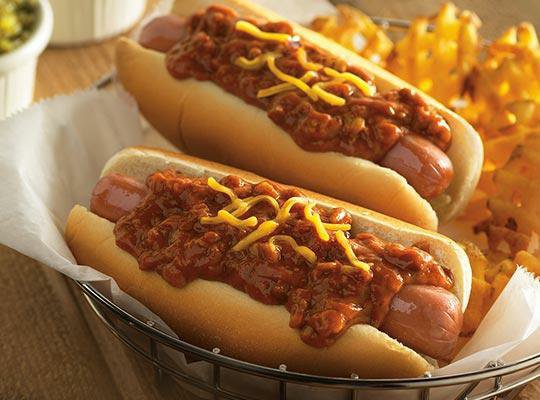 It usually is, but it doesn’t hurt to check first.
It usually is, but it doesn’t hurt to check first. - Mcdonald’s sausages (for example, the ones you get in patty form in a McMuffin) are OK when pregnant if they’re freshly made to order – you can find out more about this in my pregnant woman’s guide to the McDonalds Menu.
- Grilled or BBQ sausage – this is best checked with a food thermometer (the best one I’ve found is here) because sausages often get cooked on the outside, but not in the middle. There should be no pink when eating a BBQ’d or grilled sausage, and it should be hot all the way through to the center for it to be safe.
Are Sausage Casings OK to eat When Pregnant?
I’ve concentrated so far on the sausage fillings, but I’ve also been asked about whether it’s OK to eat all kinds of sausage casing in pregnancy.
Most types of sausage casing are safe to eat in pregnancy. This includes natural casing such as pig/hog or sheep intestines or ones manufactured from collagen. Since eating sausages hot and fully cooked is safest, this also applies to the casing.
Since eating sausages hot and fully cooked is safest, this also applies to the casing.
Occasionally you might find a cured salami type sausage that is wrapped in a plastic skin, rather than a natural edible one. They are stronger and tougher than natural casings. These should be removed – not for a specific reason in pregnancy, but because they’re chewy and inedible!
Are Nitrates in Sausage Bad For Pregnant Women?
Nitrates like potassium nitrate and sodium nitrite are frequently added to sausages to prevent them from going bad, and to keep a uniform color. Some manufacturers use natural nitrates, usually extracted from celery.
The FDA’s guidelines mean that food should have 500ppm (parts per million) or less of nitrates (source: FDA). It’s worth remembering that nitrates occur naturally in many foods – it’s the added ones that people are often concerned about.
At present, there are no guidelines that explicitly state that pregnant women need to avoid nitrates. The Food and Drug Administration (FDA) in the USA and the European Food Safety Authority both say that nitrates are safe if consumed at or below the specified levels.
The Food and Drug Administration (FDA) in the USA and the European Food Safety Authority both say that nitrates are safe if consumed at or below the specified levels.
Deli meats, like dried, cured and summer sausage, are higher in nitrates than other foods. To learn more about nitrates in deli meat, click here.
Can I Eat Expired / Out of Date Sausages In Pregnancy?
What ‘expired’ or ‘past best before’ or beyond ‘use by’ all mean are different, depending on your country’s food labeling regulations.
When you’re pregnant, it’s important to avoid foodborne illness, and avoiding expired or “out of date” food is one way of easily reducing your risk of getting sick. (source: NHS).
Fresh sausages (the type made of ground meat) should never be eaten past their expiration date as bacteria are far more likely to be present in raw, uncooked food (source: Scielo).
Cured, salted, smoked or otherwise preserved sausage such as salami, summer sausage or similar types will occasionally have very long shelf lives, often due to the amount of salt and preservatives in them.
In pregnancy, it’s safer to eat these types of sausages within the “use by” or expiration date and cook/heat them as you would normally.
If you have accidentally eaten sausage that was past its expiration date, then don’t panic, but monitor yourself for symptoms of food poisoning such as nausea or diarrhea that fall outside what is ‘normal’ for your pregnancy. If in any doubt at all, consult your healthcare provider.
| This article has been reviewed and approved for publication in line with our editorial policy. |
Is it possible to eat sausages during pregnancy or are they bad for you? • Musanews
Home first news Psyche and seduction Can you eat sausages during pregnancy or are they bad for you?
- Advertisement -
There are those who say that I am sausage during pregnancy Should be avoided and those who do not doubt it, claiming that their consumption is safe. But where does this controversy originate? A ' healthy eating mandatory during pregnancy and strictly cooked fruits, white meat and vegetables must prevail. Before reading further, watch the video below for other foods to watch out for while pregnant.
But where does this controversy originate? A ' healthy eating mandatory during pregnancy and strictly cooked fruits, white meat and vegetables must prevail. Before reading further, watch the video below for other foods to watch out for while pregnant.
Is it possible to eat sausage during pregnancy?
It is desirable to clarify the consumption of sausages during pregnancy. All pregnant women know very well that some sausages during pregnancy they are banned due to a possible vehicle toxoplasmosis, but there are a number of foods, including sausages, that are always a little puzzling. Are they cooked or raw? If we cook them, can we eat them? In this article, we will clear all these doubts. Let's say right away that I sausages during pregnancy you can eat them, but they are definitely not one to be preferred.
I sausages Sausages are similar in preparation to traditional German sausages. This is the usual inexpensive food, which is quite often present on our tables.
This is the usual inexpensive food, which is quite often present on our tables.
It's okay to indulge a little from time to time, but never exaggerate why raw sausages are especially bad if you're pregnant.
Sausages, in fact, very fatty food full of preservatives and overfilled with salt , in fact they can cause:
- problems with high blood pressure
- elevated bad cholesterol
- weight gain
Würstel during pregnancy and toxoplasmosis
La toxoplasmosis is one of the risks associated with the fact that a pregnant woman eats raw meat during pregnancy. This is about disease is harmless on its own, but becomes very risky for the fetus during pregnancy. From the point of view of toxoplasmosis, sausages are a food that should be considered safe, but it is recommended to avoid any raw animal products.
All mothers-to-be are subjected to 9 every month before giving birth0010 toxotest for blood to check if there is a bacterium; women who already have on the basis of blood tests done before pregnancy have already contracted toxoplasmosis in previous periods, they are not at risk.
But what are the symptoms of toxoplasmosis during pregnancy ? How to know that something is wrong? What we can observe is very similar to the fact that we catch a cold.
- Advertisement -
- headache
- sore throat
- fever
- fatigue
- enlarged lymph nodes
- joint pain
- enlargement of the liver and spleen
Therefore, if you are concerned that you have come into contact with the toxoplasma bacteria, tell your doctor who will prescribe an additional toxo test and correctly inform you what to do.
There is currently no toxoplasmosis vaccine , the only way to be safe is to pay attention.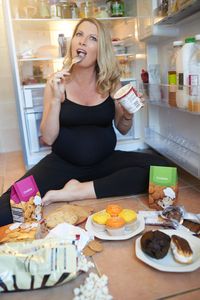
- Advertisement -
How to eat hot dogs during pregnancy
L ' nutrition during pregnancy must be taken care of and balanced, and it is precisely with respect to jerky and meat that one must behave in a certain way due to the danger of food infections .
For example, during the 9 months before giving birth eating raw sausages is bad for you because of the negative effects we have already explained in the previous paragraphs.
In addition, undercooked meat during pregnancy and also look for raw ham during pregnancy and mortadella during pregnancy .
However, if from time to time you want to get rid of the whim to eat sausage during pregnancy , you can use them boiled or boiled, so you will not be at any risk, always if you limit the doses.
Processes cooking and boiling , in fact, they will eliminate any type of bacteria that may be present as in chicken sausages than those of pork .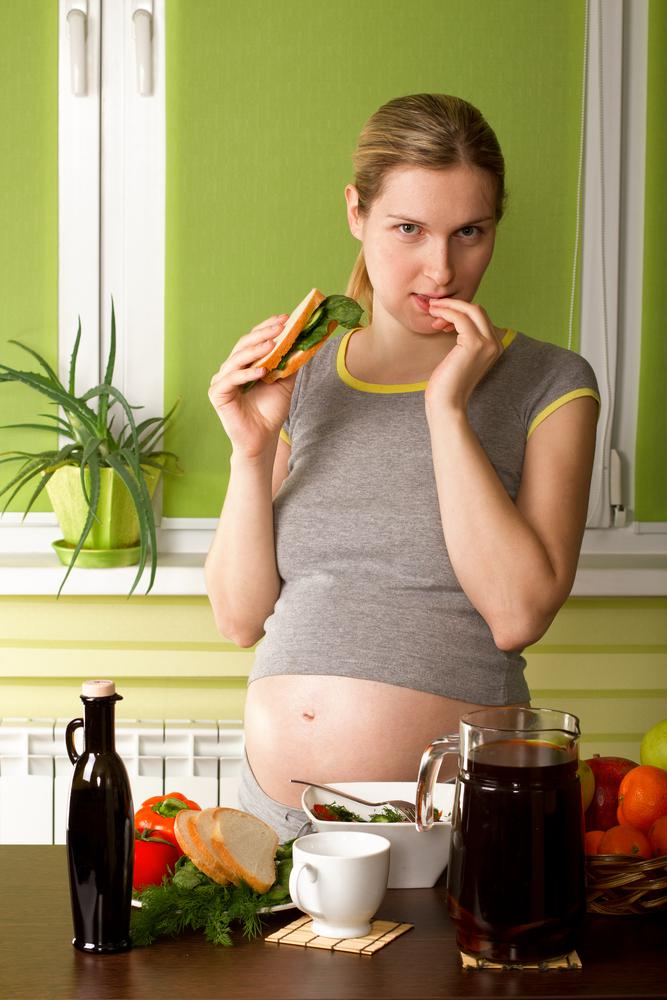
I meat that is most recommended during pregnancy, no wonder they are cooked like baked ham.
sausages during pregnancy: risks© Istock
Risks associated with pregnant sausages and pork
Doubts about what to eat and what to avoid during pregnancy remain and are completely legal: a woman who discovers that she is pregnant is rightly concerned about her health and First of all, your child. In this article, we have discussed in detail about sausage during pregnancy as far as their consumption is safe, but should remain very sporadic.
The general rule is that although consumption of pregnant meat is raw or undercooked meat and attention should be paid to:
- bresaola
- speck
- salami
- ham
- roast beef
Among cold meats and sausages that can be eaten during pregnancy instead we find:
- turkey
- baked ham
- speck (when properly prepared)
- Porchetta
Finally, remember to be careful with grilled meat during pregnancy because, in addition to being carcinogenic, it cannot be cooked well.
Article source Alfeminil
- Advertisement -
Previous articleEven coronavirus failed to curb sexism in 2020
Next articleBeckhams' Social Christmas Greetings
MusaNews Editorial
This section of our magazine also talks about how to share the most interesting, beautiful and relevant articles edited by other blogs and the most important and famous magazines on the Internet, and which allow you to share, leaving their channels open for exchange. This is done free of charge and non-commercially, but for the sole purpose of sharing the value of the content expressed in the web community. So... why still write about topics like fashion? Makeup? Gossip? Aesthetics, beauty and sex? Or more? Because when women and their inspiration do it, everything takes on a new vision, a new direction, a new irony. Everything changes and everything lights up with new shades and shades, because the female universe is a huge palette with endless and always new colors! More witty, more subtle, more sensitive, more beautiful intellect . .. ... and beauty will save the world!
.. ... and beauty will save the world!
What pregnant women should not eat: a list
A pregnant woman's menu: what it should be
What should not be eaten and drunk by pregnant women - what foods and drinks are preferred for consumption by expectant mothers?
In fact, there are practically no strict restrictions for pregnant women. You can eat everything, but in moderation or minimal amounts of certain foods. Let's start with what pregnant women should not eat or at least should not be abused and for what specific reasons. We will also not forget to talk about the possible consequences of non-compliance with restrictions.
List of what not to eat and drink during pregnancy
1. Liver. Not only are offal very fatty, that is, this delicacy can make a future mother feel bad, but it also contains a high concentration of vitamin A, which can have a teratogenic effect on the fetus. Therefore, pregnant women should not eat the liver, especially in the first trimester of pregnancy, when the child's organs are just being formed, and the expectant mother herself has any manifestations of toxicosis, which can be aggravated due to the use of the liver.
However, this is not a product that pregnant women should absolutely not eat. Later, in the second and third trimester, the liver can be consumed occasionally if the body tolerates it well.
2. Sausages. There are two reasons why pregnant women should not eat sausages, sausages and sausages. In order to change their mind about eating them, it is enough for many to carefully read the fine print on the product packaging, to find out its composition. This is far from pure high quality meat. And at best, pork bacon with beef, generously seasoned with salt, dyes and flavors to make it more appetizing. From such "meat" there will be no benefit to the body. Yes, and the salt with which the sausage is stuffed is harmful to the expectant mother. Because due to an excess of salt in a woman, fluid is retained in the body. Outwardly, this is manifested by edema. And blood pressure rises, and this is already dangerous. Let's leave the sausage for the holidays, for salads.
3. Sweets. They should not be eaten by pregnant women due to the fact that chocolate, marmalade, biscuits and similar treats are fast digesting carbohydrates. All these products have a very high calorie content, but saturate the body, relieve hunger for a very short time. This makes the woman eat sweets again and again. By the way, the same applies to high-calorie honey. It is, of course, useful, but in the amount of literally half a teaspoon. Our women love honey in sweets, for example, in baklava. And they gain weight very quickly during pregnancy due to their passion for sweets. Meanwhile, all these calories are deposited on the body of the mother and do not bear the slightest benefit to the unborn child. But it becomes harder for a pregnant woman to walk, tachycardia, shortness of breath, pain in the back and lower back appear. And after giving birth, it is very difficult to part with extra pounds.
Sweets. They should not be eaten by pregnant women due to the fact that chocolate, marmalade, biscuits and similar treats are fast digesting carbohydrates. All these products have a very high calorie content, but saturate the body, relieve hunger for a very short time. This makes the woman eat sweets again and again. By the way, the same applies to high-calorie honey. It is, of course, useful, but in the amount of literally half a teaspoon. Our women love honey in sweets, for example, in baklava. And they gain weight very quickly during pregnancy due to their passion for sweets. Meanwhile, all these calories are deposited on the body of the mother and do not bear the slightest benefit to the unborn child. But it becomes harder for a pregnant woman to walk, tachycardia, shortness of breath, pain in the back and lower back appear. And after giving birth, it is very difficult to part with extra pounds.
4. Lightly salted tomatoes, cucumbers, etc. All this is a source of salt, the dangers of consuming large quantities of which we have already written earlier.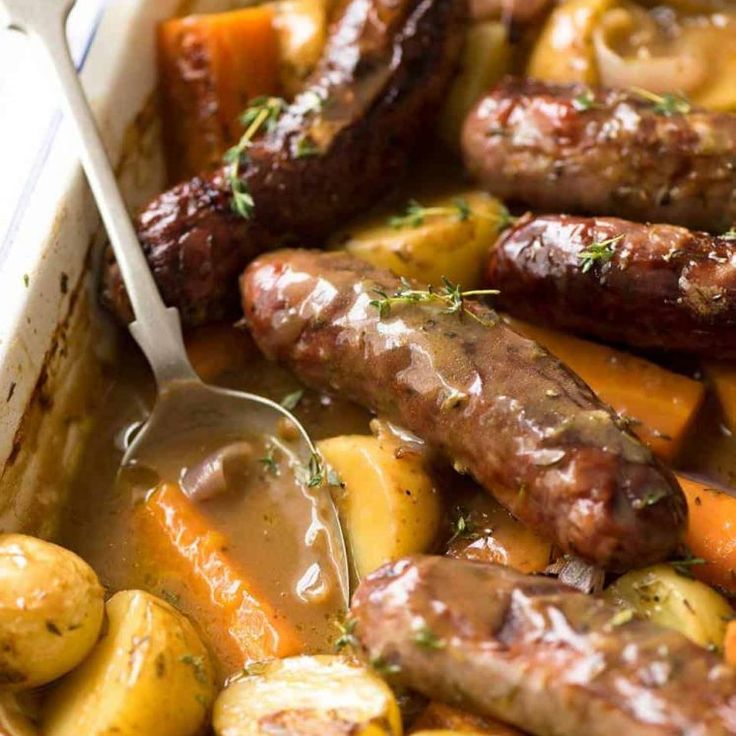
5. Alcohol. Adequate doctors always say that pregnant women should not drink alcohol at any time and in any quantity. Few of the expectant mothers have heard of FAS - fetal alcohol syndrome in the fetus. It occurs in most cases when taking a large amount of alcohol at once. The child can not only develop malformations as a result of such maternal libation, but also mental retardation, as well as typical manifestations on the face, like a genetic syndrome. And it is impossible to cure FAS, only prevent it by not drinking alcohol during pregnancy.
Meanwhile, the use of small doses of alcohol by the mother is also potentially dangerous for the fetus. It can provoke premature birth, placental abruption, low intelligence in a child.
6. Tea and coffee. Many women find these drinks unacceptable because of their caffeine content. But in fact, not everything is so scary. The level of caffeine contained in two cups of coffee is absolutely safe for an expectant mother.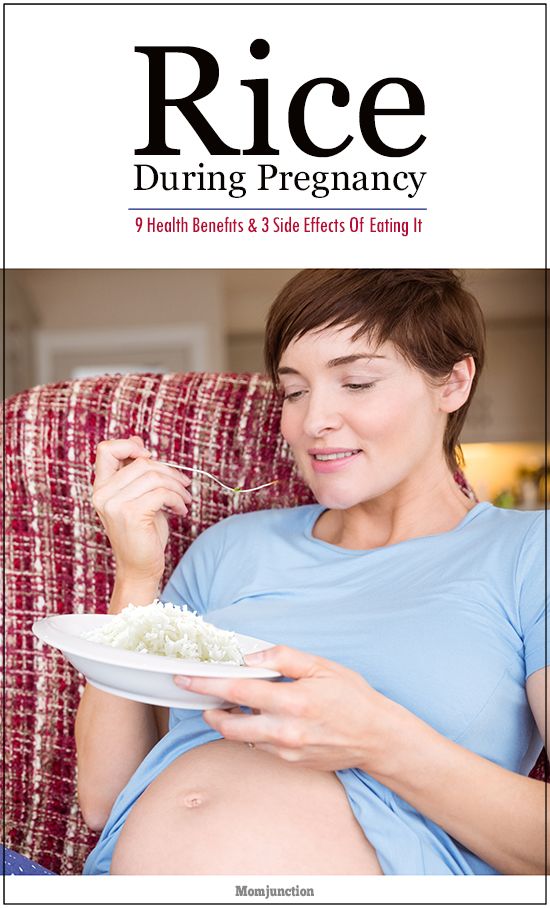 But in 4 cups of coffee - it is already potentially dangerous. Pregnant women should not drink that much coffee.
But in 4 cups of coffee - it is already potentially dangerous. Pregnant women should not drink that much coffee.
If a woman regularly takes such a large amount of caffeine, the child may experience intrauterine growth retardation. Such children are born weak and underweight. But premature birth and miscarriages caffeine does not provoke.
Tea also contains caffeine in large quantities, but tea has almost no effect on the body, it does not have an invigorating effect, since it is almost not absorbed from this drink.
Other foods, such as chocolate, contain small amounts of caffeine. But in some medicines a lot. For example, the Citramon headache remedy contains caffeine in high concentrations. It should not be taken by expectant mothers.
7. Carbonated soft drinks. They have a high calorie content and zero utility. Many preservatives, flavorings and dyes in the composition. If you really want fruit flavors, drink natural juice.
8.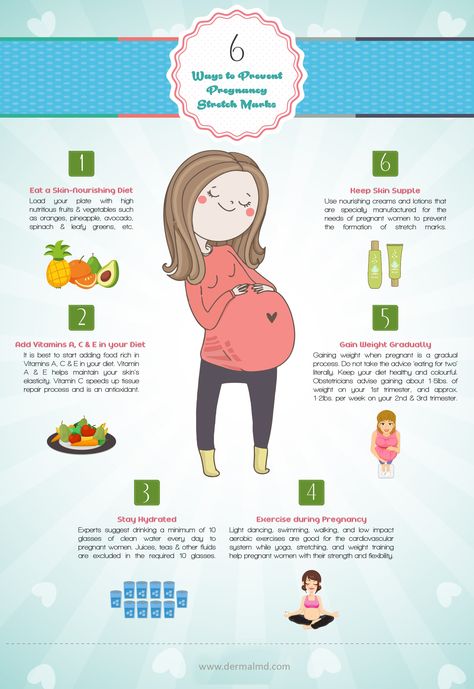 Narzan with high mineralization. Many of us consider mineral water beneficial for the body. This is true, but only if it is chosen and used correctly. Narzans differ not only in their taste, but also in composition. Some of them contain a lot of minerals, salts, and therefore should be consumed in minimal quantities and only for medical reasons, usually in sanatoriums. The temperature of narzan also plays a role in its digestibility.
Narzan with high mineralization. Many of us consider mineral water beneficial for the body. This is true, but only if it is chosen and used correctly. Narzans differ not only in their taste, but also in composition. Some of them contain a lot of minerals, salts, and therefore should be consumed in minimal quantities and only for medical reasons, usually in sanatoriums. The temperature of narzan also plays a role in its digestibility.
It's just that it's better to drink water with little mineralization. No more than 3 grams per liter (indicated on the label). This water will help with heartburn.
But salty narzan, for example, "Essentuki 17" can provoke an increase in blood pressure and swelling.
9. Fish. A pregnant woman's menu should contain a minimum of fish. Especially large, marine. The fact is that sea water contains mercury. And the larger the fish, that is, the older, the more it accumulates in itself this dangerous metal. Therefore, women who are planning a child, already pregnant, and also breastfeeding should be careful with sea fish. Prefer smaller fish. Shrimps, salmon and light tuna are preferred from marine products. Shark meat and swordfish should be avoided. You can eat no more than 170 grams of sea fish per week. The weight indicated is fresh, uncooked fish.
Prefer smaller fish. Shrimps, salmon and light tuna are preferred from marine products. Shark meat and swordfish should be avoided. You can eat no more than 170 grams of sea fish per week. The weight indicated is fresh, uncooked fish.
10. Undercooked poultry, bovine meat, eggs. They may contain dangerous parasites and disease-causing bacteria - salmonella. Intestinal infections are very dangerous for expectant mothers. They have a toxic effect on the fetus, lead to dehydration of the mother's body, weight loss, which also causes the unborn child to suffer.
Eggs should not be eaten raw, and should be washed thoroughly before cooking, as it is on the shell that salmonella can be found. You need to cook enough so that the yolk becomes dense. That is, twisted. Sauces with raw egg yolks or undercooked sauces, such as Hollandaise, should be avoided.
Beef should be cooked at a temperature of at least 70 degrees, poultry meat - at least 80 degrees.
11. Soft cheeses, cheese. They should be avoided due to the fact that they can be contaminated with a dangerous microorganism - listeria. Symptoms of listeriosis are nausea, vomiting, and diarrhea. The infection can lead to fetal damage and miscarriage.
Soft cheeses, cheese. They should be avoided due to the fact that they can be contaminated with a dangerous microorganism - listeria. Symptoms of listeriosis are nausea, vomiting, and diarrhea. The infection can lead to fetal damage and miscarriage.
This is an indicative list of what pregnant women should not eat and drink. It's probably incomplete. But most foods do not need to be completely eliminated from the diet. For example, citrus fruits. They should not be carried away by expectant mothers in order to avoid allergic reactions. But moderate consumption is allowed.
Recommended menu for pregnant women and advice from doctors
The diet of the expectant mother should be varied - this is the main requirement. Indeed, the health of the child will depend on the quality of nutrition, how complete it is, contains all the necessary vitamins and minerals. Of course, there are complex vitamin supplements for food, but it is better to get vitamins in their natural form. And in the form of tablets, you should take folic acid, potassium iodide. Iron and calcium as needed. Remember that folic acid deficiency provokes malformations in the fetus. Lack of calcium to damage to the teeth of the mother and a violation of the formation of the skeleton in the child. Lack of iodine leads to mental retardation of the baby. And a lack of iron leads to anemia in a child after birth, a delay in his mental and physical development.
And in the form of tablets, you should take folic acid, potassium iodide. Iron and calcium as needed. Remember that folic acid deficiency provokes malformations in the fetus. Lack of calcium to damage to the teeth of the mother and a violation of the formation of the skeleton in the child. Lack of iodine leads to mental retardation of the baby. And a lack of iron leads to anemia in a child after birth, a delay in his mental and physical development.
Strict vegetarians, those who do not consume meat or dairy products, definitely need an additional intake of vitamin D in the amount of 400-400 IU / day, vitamin B-12 in the amount of 2 μg / day. Plus, you need to be sure to monitor the calorie content of your diet. It doesn't have to be low calorie.
By the way, what calorie content should the expectant mother have. There are different opinions. The most common is that it is about 200 kcal higher than that of a non-pregnant woman. In fact, it all depends on the initial weight, whether there is an excess or a lack of it. In addition, a woman with multiple pregnancies should eat a little more than the norm. On average, the weight gain in a woman with a normal body mass index during pregnancy is 10-12 kg.
In addition, a woman with multiple pregnancies should eat a little more than the norm. On average, the weight gain in a woman with a normal body mass index during pregnancy is 10-12 kg.
And these are products that must be in the diet.
1. Kefir, fermented baked milk, bifidok, milk. In this case, special emphasis should be placed on fermented milk products. Not every adult is able to digest milk well. For many, it provokes increased gas formation and diarrhea. And even more often this side effect is observed in expectant mothers.
Kefir, on the other hand, has a milder effect on the digestive system. And it must be present in the diet of a woman also as a prophylactic against constipation. For this purpose, it is advisable to drink the freshest sour-milk drinks, in this case they contain the maximum number of bacteria to normalize the intestinal microflora. It is advisable to consume about 500-600 grams of milk and sour-milk drinks per day.
On milk, you can cook yourself porridge - oatmeal, millet, rice, etc.
2. Cottage cheese and cheese. These are not only excellent products for the prevention of calcium deficiency, on a par with dairy, but also sources of animal protein. Cottage cheese is desirable to use with a fat content of 4-9%. Enough 400 grams per week. Cheeses must be firm. Up to 100 grams per week.
3. Butter. It should not be abandoned. It is very good to add butter to cereal cereals, for example, to buckwheat. It is allowed to consume up to 100-150 grams of butter per week.
4. Meat. It must be lean varieties. Beef or poultry. But be sure to carefully prepared. Preferably boiled or baked. Meat is not only an invaluable source of protein, but also iron, which is lacking in the body of most expectant mothers. It is desirable to have meat in the daily diet. Approximately 150 grams.
5. Cereals. You can cook porridge by cooking in a saucepan, in the microwave, or you can buy cereal that is enough to fill with water or milk. It doesn't play a big role. But it will bring tangible benefits. Cereals contain many useful substances for the body. They have a low calorie content, and therefore will not lead to rapid weight gain. And the huge amount of fiber that cereals contain will save you from constipation.
It doesn't play a big role. But it will bring tangible benefits. Cereals contain many useful substances for the body. They have a low calorie content, and therefore will not lead to rapid weight gain. And the huge amount of fiber that cereals contain will save you from constipation.
6. Vegetables. Can be eaten raw, in salads dressed with olive or vegetable oil. Recommended 400 grams per day.
7. Fruit. Approximately 300 grams per day will be sufficient. It is advisable not to lean on citrus fruits. Drink fruit juices in moderation, as they contain a lot of sugar and no fiber.
Here is a rough list of what you can eat during pregnancy and what you can not eat in the early stages of pregnancy and later. The expectant mother should eat fractionally - often, up to 5-6 times a day, but little by little. This will help prevent severe heartburn attacks. And for long periods there will be no belching, and in general, health will be better if there is not a lot of food in the stomach right away.